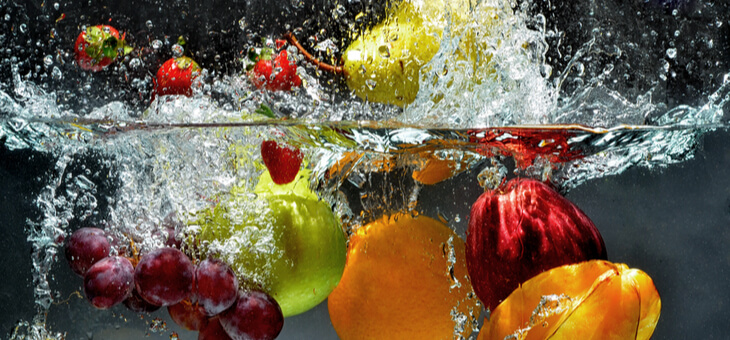It makes sense to wash some food items before using them in your cooking, but there are others that should never be washed before going into the pot.
In our post-pandemic world, it can be tempting to run raw food under the tap before cooking it, just in case. Who knows what viral menaces it’s been exposed to at the supermarket?
You do actually need to rinse most raw fruits and vegetables and some meats before consuming them to remove bacteria and any other impurities – but there are some exceptions.
Poultry
Most of us are aware of the potential for raw and undercooked poultry to spread harmful bacteria such as E. coli and salmonella. It would seem logical to wash raw poultry under water, but this does more harm than good.
Read: Foods you should eat in your 50s, 60s and beyond
It is far more effective to transfer raw poultry straight from its packaging directly into the pan where the heat will kill the bacteria. Washing the poultry runs the risk of spreading the bacteria to hands and other surfaces.
A survey found 49 per cent of Australians reported washing raw poultry before cooking it.
Red meat
Similar to poultry, raw red meat can also harbor a number of different germs. But again, washing meat before cooking it only runs the risk of unnecessary cross-contamination.
Transferring your meat directly into high temperatures is the quickest, most effective and least risky way of handling it.
Read: Commonly consumed foods that can sap your energy
Mushrooms
Washing most raw fruits and vegetables is the right thing to do to remove any lingering dirt and other impurities, but mushrooms are a notable exception.
Mushrooms are extremely porous, and act like little sponges, soaking up liquid. Washing them under water can actually introduce contaminants, so your well-intended washing is having the opposite effect.
Pre-washing mushrooms can even negatively affect their flavour and texture, making them slimy and mushy even when cooked.
Eggs
While technically eggs are poultry, most people wouldn’t handle them in the same way they would raw chicken.
When a chicken lays an egg, a thin coating called bloom covers the outer shell, which is covered in tiny pores. This film protects the egg from bacteria and other germs.
Read: Best and worst foods to boost your mood and brain health
Farmers and commercial egg producers have methods of cleaning eggs that keep this layer intact. Running eggs under water before storing in the refrigerator will remove the bloom and ruin the protection.
Pasta
Nobody rinses dry pasta before use, but it’s not uncommon for people to rinse cooked pasta before adding it to the sauce to remove excess starch. This doesn’t harm the pasta in any way, but there’s no food safety reason to do so.
The starch is also essential for the flavour, binding the sauce to the pasta, so you’d be sacrificing flavour and texture for no benefit.
If you enjoy our content, don’t keep it to yourself. Share our free eNews with your friends and encourage them to sign up.

